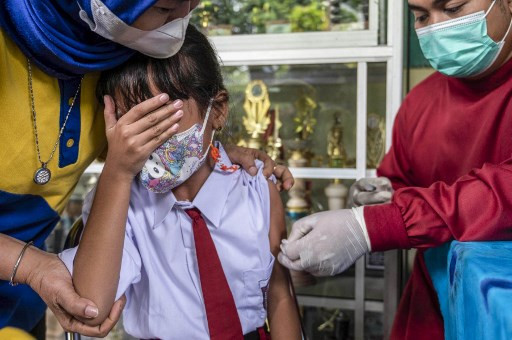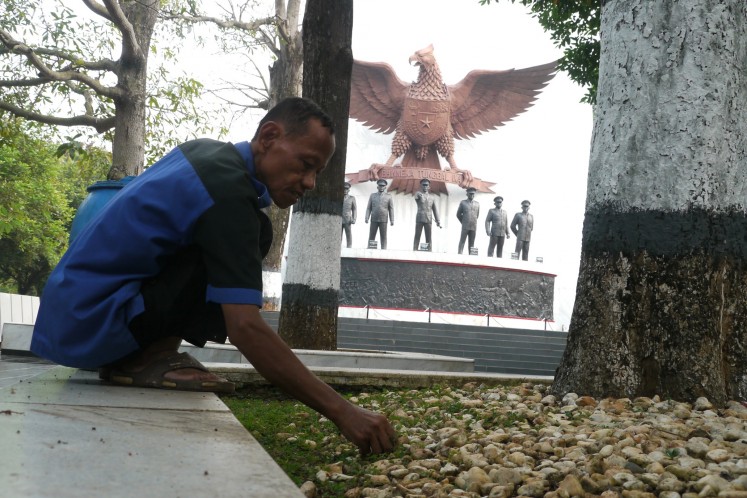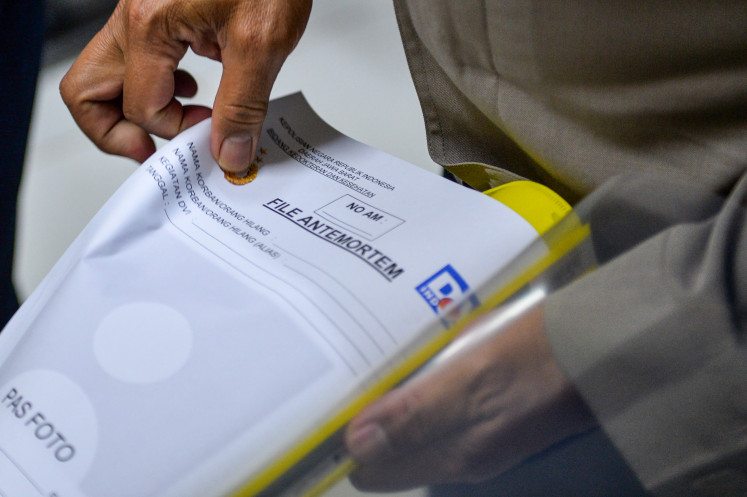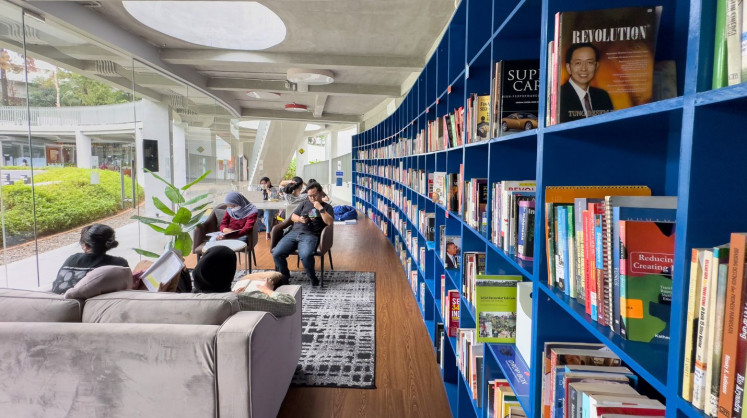Govt promises to add halal vaccine to booster program
Indonesia will offer halal-certified vaccines under the state-led immunization drive to appease its Muslim-majority citizens.
Change text size
Gift Premium Articles
to Anyone

T
he Health Ministry has announced that it will add one of the more widely available COVID-19 vaccines with halal certification to the state-led booster jab rollout, in an effort to assuage the concerns of the country’s Muslim majority.
A ministry official confirmed on Tuesday that it would add the CoronaVac vaccine, co-manufactured by state-run pharmaceuticals company BioFarma and China’s Sinovac Biotech, to its current roster of booster shot offerings.
The decision was made following a recent Supreme Court ruling calling on the government to offer halal-certified vaccines, to ensure that its many Muslim recipients have the option of getting faith-approved protections.
Ministry spokeswoman Siti Nadia Tarmizi told The Jakarta Post on Tuesday that her office had begun to redistribute its stockpile of Sinovac vaccines across the country, after saying on Monday that the government would “respect the Supreme Court’s decision” requiring halal vaccines to be offered in the state vaccination program.
“For members of the public who feel more comfortable using Sinovac, we will open up the opportunity to use it as a booster vaccine option,” she said.
There are currently around 7 million Sinovac vaccines in the national stockpile, with Siti noting that they would gradually be available as a booster option in the near future.
In spite of its shortcomings, Indonesia’s COVID-19 response has been met by wide praise, in no small part thanks to the government’s swift procurement of vaccines from a variety of foreign manufacturers.
The global state of emergency had led the country’s conservative-leaning Muslim leaders to exempt the use of otherwise halal-uncertified vaccines, produced primarily in Western countries, in favor of immediate protection for its large population.
But now that the vaccination drive has shifted to providing additional immunity to the contagious disease, officials are hard pressed to offer more Muslim-friendly options, just as the nation heads into Islam’s most important holiday.
Read also: Booster shots demand picks up in anticipation of ‘mudik’
Indonesia has so far seen 164 million people, or some 78 percent of the national targeted population of 208 million, fully inoculated. However, just under 17 percent of the targeted population has received a third booster shot, which the government has made a mandatory travel requirement for the annual mudik (exodus) tradition. Nearly 230 million of its 279 million-strong population are recorded as Muslim.
According to the ministry, the national vaccination drive utilizes five COVID-19 vaccines – produced by Sinovac, AstraZeneca (AZ), Moderna, Pfizer-BioNTech and Janssen, respectively – all of which have secured emergency use authorization (EUA) from the national Food and Drug Monitoring Agency (BPOM).
Another vaccine, manufactured by Chinese state firm Sinopharm, has also obtained an EUA but is used only in the private sector-led Gotong Royong vaccination scheme.
However, only the Sinovac and Sinopharm vaccines, along with China’s Zivifax and the locally produced Merah Putih vaccine seed, have obtained halal certification from the nation’s top Islamic clerical body, the Indonesian Ulema Council (MUI).
Of all the halal-certified vaccines, only Sinovac has seen wide use in the national vaccination campaign.
In spite of this, the Sinovac vaccine was omitted from the state booster regimen, with Siti saying the decision was made so it could be set aside solely for minors, due to it being the only vaccine to date that is eligible for use among younger age groups.
Conversely, the AZ, Pfizer and Moderna vaccines were declared haram, or forbidden under Islam, by the MUI, due to biological materials derived from swine. However, they were still permitted for use (mubah) due to the state of emergency caused by the pandemic.
When the booster rollout first started in January, the third dose was initially only made available for first- and second-dose recipients of Sinovac and AZ vaccines, but was later amended to encourage wider protections.
Read also: Indonesia starts booster shot rollout amid lingering equity concerns
The Supreme Court ruling that sparked this change in policy was granted in favor of a judicial review filed by the Indonesian Muslim Consumers Foundation (YMKI).
The group had sought to challenge Article 2 of Presidential Regulation No. 99/2020, which handed the authority to determine which vaccines to use to the government.
On April 14, the court found the regulation under scrutiny to have contravened Law No. 33/2020 on halal product guarantees, which stipulates that all products that enter, circulate and are traded within Indonesian territory must have halal certification.
In its ruling, which was made publicly accessible only last week, the bench concluded that the presidential regulation was nonbinding if the government was unable to guarantee the halal status of COVID-19 vaccines.
“The government, in carrying out its COVID-19 vaccination program, cannot impose its will on the public to be vaccinated for any reason and without condition, [...] unless there is a guarantee of the halal status of the COVID-19 vaccine,” the ruling stated.
Meanwhile, the halal requirement could seriously impact the direction of the government’s objective to become a regional vaccine manufacturing hub, some observers say.









